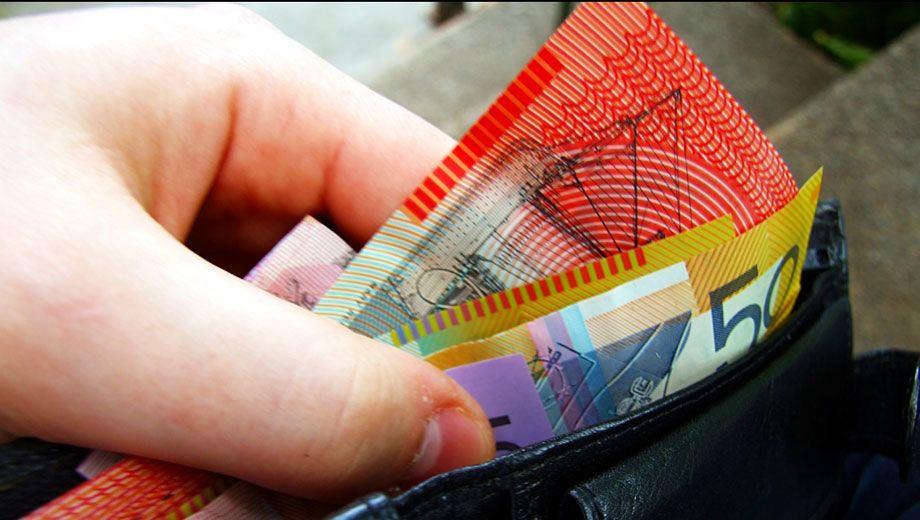ACCC orders extra compensation for disrupted Qantas passengers

Disclaimer
Executive Traveller may receive a commission when you apply for these credit cards via our links.
The information provided on this page is purely factual and general in nature. You should seek independent advice and consider your own personal circumstances before applying for any financial product.
Update: The Australian Competition and Consumer Commission (ACCC) has told Qantas that planned compensation amounts are not adequate -- and the airline has agreed.
In an unusually forthright statement, ACCC chairman Rod Sims said: "It is squarely in the airline’s camp to make good. If you have incurred additional expenses as a result of the grounding the ACCC is of the view that Qantas should compensate you for all your reasonable losses."
Sims also suggested passengers may be able to insist that Qantas pay up by contacting their local fair trading agency: "If you have losses over and above what has been offered by QANTAS, you can contact your state or territory fair trading agency for further information on your rights," Sims explained.
In response, a short Qantas statement was released, stating "Qantas agrees to and accepts the ACCC's request that it compensate passengers for all reasonable losses incurred as a direct result of the grounding. Qantas has always intended to ensure that disrupted customers incur no financial loss."
"In addition to this commitment, Qantas will shortly be announcing further measures as an apology to affected customers," the airline's statement said.
Previously:
Some 70,000 passengers were hit by the weekend’s abrupt grounding of all Qantas flights.
And while Qantas is now getting back in the air, many travellers have been wondering who will foot the bill for accommodation, meals, phone calls (to families and colleagues, as well as the airline and travel managers) and other unexpected expenses.
Here’s a run-down of who will cover what.
Qantas
Qantas has said it will reimburse stranded travellers “for reasonable out of pocket expenses including accommodation, transfers, meals and incidentals.”
The airline has set a nominal limit of A$250 per night for accommodation, and $100 for incidentals (meals and phone calls) per person per day, up to a total of $350 per person per day.
You’ll want to be armed with all your receipts and complete the online expense form to claim for accommodation, meals and transfer expenses incurred as a result of the disruption.
If you needed to fly with another airline, Qantas says it will offer a refund on the cost of your ticket (use the Fare Refund & Qantas Rebooking Claim Form) and also “reimburse the difference between the cost of the new ticket (in same cabin of travel) and the value of the refunded Qantas ticket" (use the Fare Difference on Another Carrier Claim Form).
Travel insurance
There have been some issues with travel insurance policies not paying up due to Qantas flight cancellations not being “unforeseen”, because the airline warned of cancellations some days prior.
But with the sudden and total shutdown of the entire Qantas network, it’s hard to imagine how any travel insurer could argue that same case!
Never the less, it will pay to check the dreaded ‘fine print’ in your travel insurance contract to determine exactly what you’re entitled to – and what you’re not.
For example, some policies may not allow for the cost of laundry; there are also standard “gotchas” such as using the word "reasonable" to potentially cap expensive claims – "reasonable meal and accommodation expenses", for example. You and your insurer may turn out to have very different opinions on what 'reasonable' means!
You may also be caught out by 'limits' of your policy – the maximum daily amount allowable in terms of accommodation, meals and other expenses – as well as the amount of the initial excess, which you're obliged to pay before making any claim for reimbursement.
Credit card travel insurance
If you didn’t take out travel insurance this time, don’t despair: if you paid for your flights with your credit card, and especially if it’s a Platinum card, you may already be covered by the card’s own travel insurance scheme.
You don’t have to have paid for the entire trip on your credit card, but the amount required varies.
For example, with ANZ Platinum you only have to put $250 of the ticket on the card to qualify for travel insurance, but the Commonwealth Bank requires that you pay 90% of the ticket cost on their card, or $950, whichever is higher – so if your ticket or total airfare-hotel package was less than $950 you won't be covered by their travel insurance.
How do credit cards cover you in events like the Qantas shutdown? After a set delay, such as six hours, you’re eligible for expenses capped at a certain amount per person.
For example, the ANZ Platinum Card offers up to $500 per person, to a total maximum of $1,000. While Commonwealth Bank Platinum cards offers a lower $250 per person after six hours, there’s an extra $150 per person for each additional 12 hour block.
Some Platinum credit cards also offer a limited amount of domestic travel “inconvenience” insurance – so again, if you've paid for the trip with your credit card this is worth looking into. You may already have some form of coverage against being stranded on home turf.
For a comprehensive comparison of credit card travel insurance plans, read our special report.
Disclaimer
Executive Traveller may receive a commission when you apply for these credit cards via our links.
The information provided on this page is purely factual and general in nature. You should seek independent advice and consider your own personal circumstances before applying for any financial product.

Hi Guest, join in the discussion on ACCC orders extra compensation for disrupted Qantas passengers